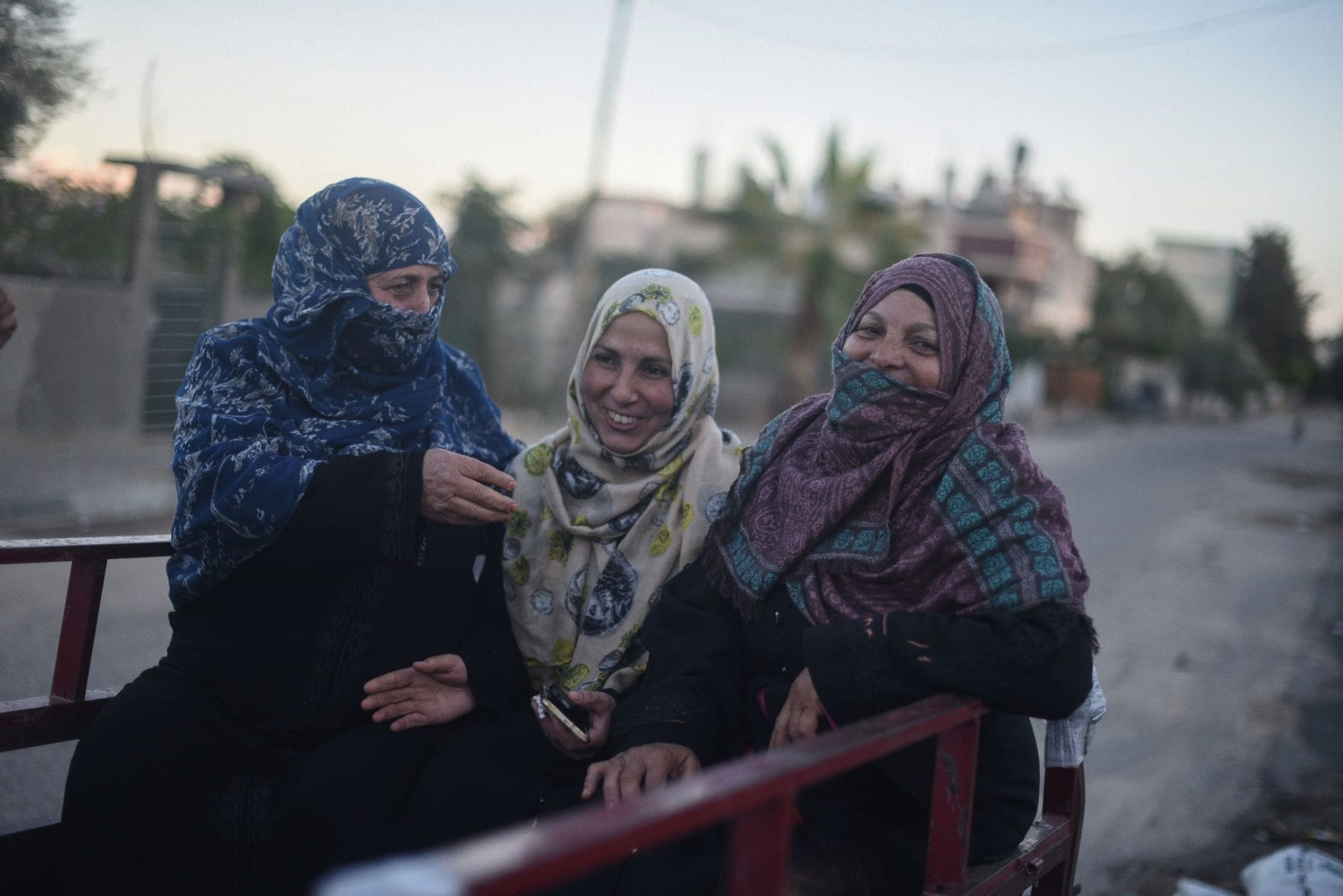
Apr 20, 2021
Workers in Palestine now have even more support for their efforts to achieve rights and respect at work: The National Alliance for Social Justice in Palestine, launched in Ramallah in recent days, seeks to craft Palestinian labor law in line with international labor standards and expand equitable legislation for all Palestinians. Alliance leaders say such coordination is especially essential to advance social justice standards and worker protection during COVID-19 lockdowns.
The 41-member alliance, headed by the Palestinian General Federation of Trade Unions (PGFTU), includes the majority of professional unions, trade unions and Palestinian civil society institutions in the West Bank and Gaza. PGFTU spearheaded the coalition with support of the International Labor Organization (ILO) in March 2021.
Among the Code of Honor Principles:
- Adopting the principles and standards of sustainable and alternative development to build a national economy and reject all forms of normalization
- Adopting a participatory, holistic approach in implementing the Alliance’s plan and programs
- Promoting and adopting mechanisms to advocate and campaign for policies and regulations on economic and social rights and amendments to the labor law in line with international labor standards
- Believing in the coalition that will build labor law, policies and social protection systems
- Believing in the necessity of unifying demands on issues of social justice, economic and social rights, and trade union demands for all member institutions of the coalition
Among the Alliance Founding Partners:
- PGFTU (president)
- General Union of Palestinian Workers
- The General Federation of Independent Trade Unions
- The General Union of Palestinian Women in West bank and Gaza Strip
- Sharek Youth Forum
- Wasel Foundation for Youth Development
- Women and Media Development Association – TAM
- Center of Psychosocial Counselling for Women
- The Palestinian Foundation for Empowerment and Local Development – Reform
- Center for Feminist Studies
- Palestinian Broadcasting Union
- Palestinian NGOs Network
- Union of Palestinian University Professors and Employees
Solidarity Center programs in Palestine support the PGFTU in building coalitions with civil society organizations to combine efforts with the labor movement to advocate for national policy reform, campaign for labor rights and address the important issues for workers collectively.
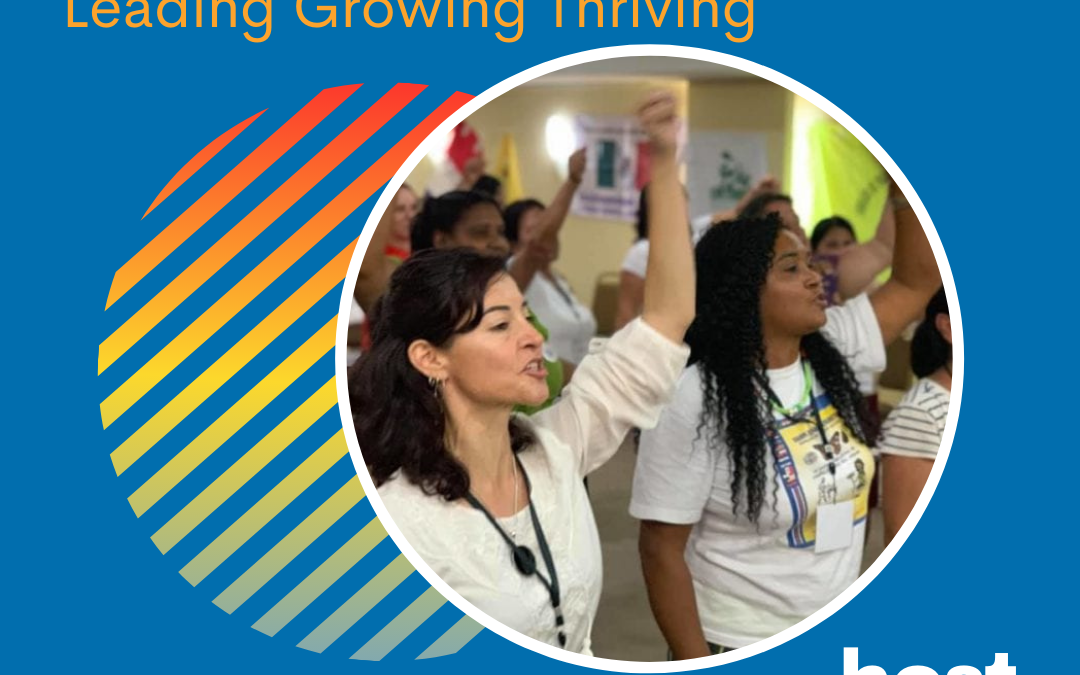
Apr 14, 2021
Domestic workers are among the most invisible workers in the world—yet in Latin America, they are joining together to champion their rights at their workplace and in their communities, says Adriana Paz Ramirez on this week’s episode of The Solidarity Center Podcast.
Paz, Latin American regional coordinator for the International Domestic Workers Federation (IDWF), says these mostly Black and Indigenous women are breaking decades of intergenerational oppression and trauma, and forging new paths through holistic leadership training, creating community-wide social movements and expanding their strength by connecting with each other.
Within six months of a recent leadership training, for example, 9,000 new members signed up with 26 organizations, Paz tells host Shawna Bader-Blau, Solidarity Center executive director.
“I was so touched by a domestic worker leader who said that I have not been able to give my daughter an inheritance, like money or a house, but I’m giving her this movement. Because this is changing our lives, because this is changing our countries, because this is changing history,” she says.
“That is the significance of getting themselves into a union. If the women at the bottom of the bottom are racing up, all of us are raising up.”
Listen Anytime to The Solidarity Center Podcast
The Solidarity Center Podcast, “Billions of Us, One Just Future,” highlights conversations with workers (and other smart people) worldwide shaping the workplace for the better.
Be sure to catch last week’s episode in which Bader-Blau talks with Francia Blanco, a trans rights activist, domestic worker and union leader in Nicaragua who is working with her union to achieve rights, respect and dignity on the job for all LGBTQ+ workers.
Look for final episode this season on April 21, with International Trade Union Confederation President Ayuba Wabba. He explores the Nigerian labor movement’s response to the COVID-19 crisis and discusses the global labor movement’s plans to build back better for workers around the world
And check out recent episodes:
• LGBTQ+ Domestic Workers Win Rights with Their Union
• Making the Gig Economy Work for Workers
• Winning Rights for Migrant Workers
• Defending Democracy: Workers on the Frontline
• Ending Gender-Based Violence at Work: The Campaign to Ratify ILO C190
This podcast was made possible by the generous support of the American people through the U.S. Agency for International Development (USAID) under Cooperative Agreement No.AID-OAA-L-16-00001 and the opinions expressed herein are those of the participant(s) and do not necessarily reflect the views of USAID/USG.
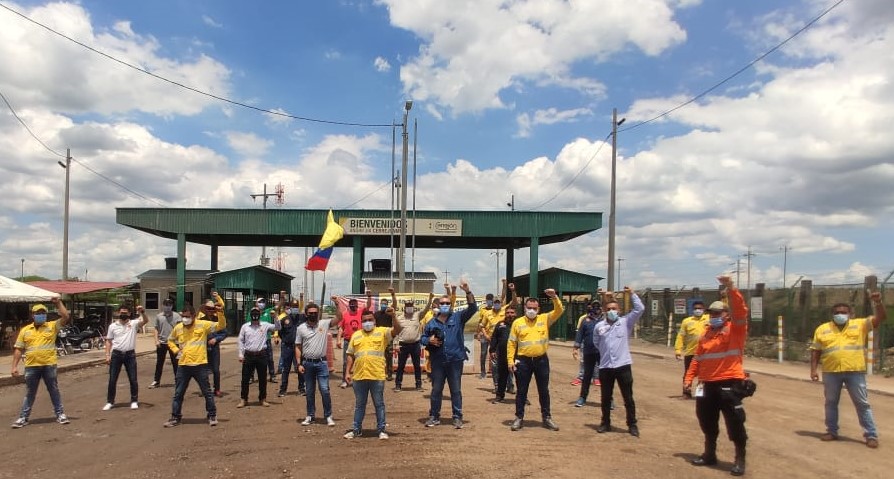
Apr 7, 2021
Organizations representing Colombia’s energy and mining sector workers are supporting the country’s transition to cleaner energy while preserving decades-long, hard-fought progress in turning often unsafe and poorly paid jobs into safer, family-sustaining livelihoods.
A joint declaration signed late last year formalizes the commitment of Colombia’s national labor federation Central Unitaria de Trabajadores–CUT and three of its largest mining- and energy-sector unions—Sintracarbón, Sintraelecol and Unión Sindical Obrera (USO)—to an urgent national effort to abandon fossil fuels and adopt new technologies, assuming those policies prioritize:
- National policies that support full compliance with Paris Agreement goals
- Government oversite of such policies, including all climate interventions implemented by private mining and energy companies in Colombia
- The preservation and strengthening of decent work in mining and energy sectors, and of their unions.
“Colombian energy- and mining-sector workers—and the communities they sustain—must participate in every step of the process to ensure workers’ rights to safety and good jobs are supported by the country’s energy transition policies,” says Carlos Guarnizo, Solidarity Center Colombia-based program coordinator.
“Transition to a new energy agenda should be negotiated with us and the rest of society,” to ensure a fair and democratic model of energy production, says the declaration. Energy- and mining-sector workers should be consulted because they have the knowledge and experience to conceive, propose and advance the discussions that will shape the policies on transition to clean energies. Declaration signatories will be working in coalition with one another, as well as with academics, social and environmental justice movements and the international community, to devise such a model.
“On Earth Day, the Solidarity Center stands with Colombian energy- and extractive-sector unions—and all others around the world—as they drive the vision for a fair or just transition to a cleaner, more inclusive, and more equitable economy,” says Sonia Mistry, Solidarity Center global lead on climate change and just transition.
The Intergovernmental Panel on Climate Change (IPCC) found that emissions from fossil fuels are the dominant cause of global warming. Carbon dioxide emissions increased by almost 90 percent from 1970 through 2011, with emissions from fossil fuel combustion and industrial processes contributing almost 80 percent of that increase. About 50 percent of Colombia’s electrical-generation capacity is in the hands of privately owned companies.
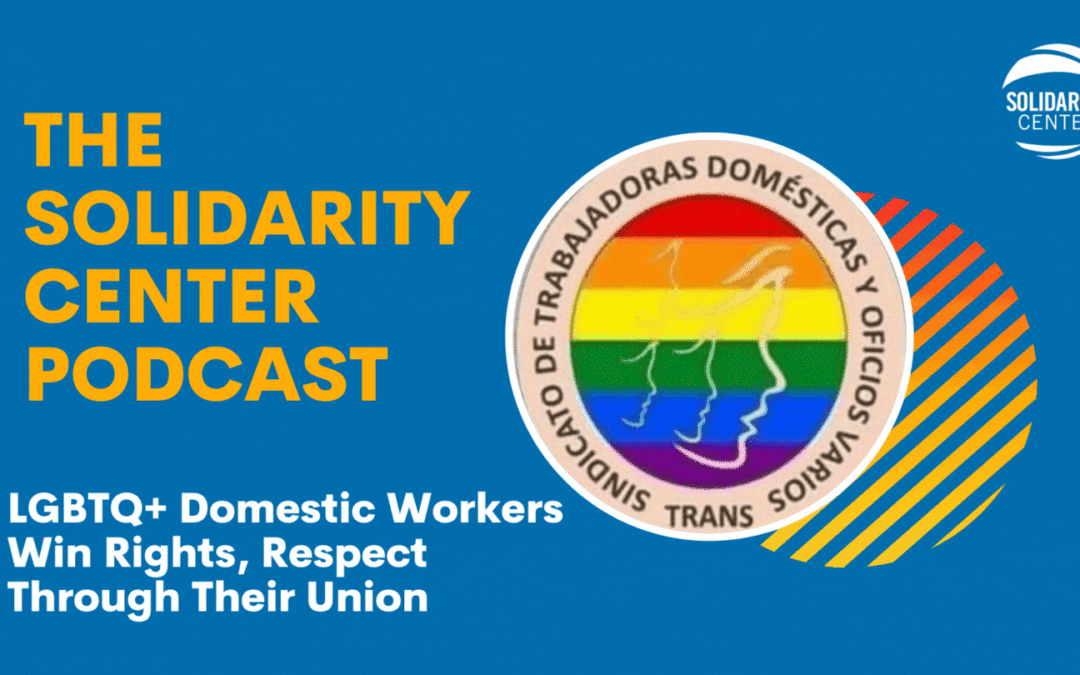
Apr 7, 2021
As a trans domestic worker from Nicaragua working in Guatemala, Francia Blanco says her experiences with verbal and physical abuse, discrimination, and forced labor conditions led her to take action to build a world where trans domestic workers had rights, respect and dignity on the job. And, back in Nicaragua, that’s exactly what she and her co-workers are doing through SITRADOVTRANS, a union of trans domestic workers that is breaking barriers in the labor movement and beyond.
“We all know that at times, results can be slow to appear but we always are training up more of our members to not only learn more themselves but also find more women in the community who want to be part of this process,” she says.
“And it’s an ongoing process because you know we live in a globalized world and things are always changing so this is not something that can stop, we always have to be moving with it.”
Blanco spoke with Solidarity Center Executive Director Shawna Bader-Blau in this week’s episode of The Solidarity Center Podcast.
Blanco’s union is a member of FETRADOMOV, the federation of domestic workers in Nicaragua.
“For us as a trans union, it is very important to affiliate with unions on the national level. We have more support when we are in greater numbers. And also, we are domestic workers. Most trans women see domestic work as one of the few options they have access to.”
Listen Anytime to The Solidarity Center Podcast!
The Solidarity Center Podcast, “Billions of Us, One Just Future,” highlights conversations with workers (and other smart people) worldwide shaping the workplace for the better.
Look for upcoming episodes, including:
April 14: Adriana Paz, an advocate with the International Domestic Workers Federation who understands firsthand the power of unions in ensuring domestic workers have safe, decent jobs
April 21: International Trade Union Confederation President Ayuba Wabba, who explores the Nigerian labor movement’s response to the COVID crisis on workers and discusses the global labor movement’s plans to build back better for workers around the world
And check out recent episodes:
- Winning Rights for Migrant Workers
- Defending Democracy: Workers on the Frontline
- Ending Gender-Based Violence at Work: The Campaign to Ratify ILO C190
This podcast was made possible by the generous support of the American people through the U.S. Agency for International Development (USAID) under Cooperative Agreement No.AID-OAA-L-16-00001 and the opinions expressed herein are those of the participant(s) and do not necessarily reflect the views of USAID/USG.
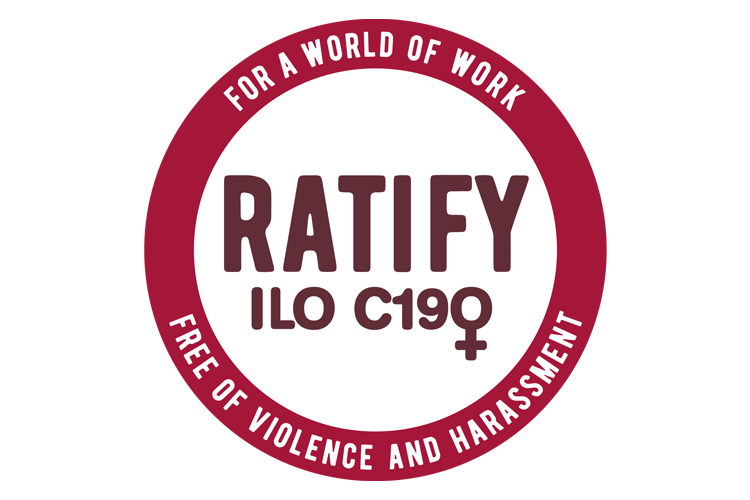
Apr 5, 2021
Union women and Solidarity Center partners from the Middle East and North Africa spearheaded a petition calling for governments to ratify International Labor Organization Convention 190, the landmark global labor standard adopted in June 2019 to eliminate violence and harassment in the world of work, including gender-based violence and harassment (GBVH).
“The idea of starting a petition arose during the seminar we held as a collective, ‘Women for the Dignity and Rights of Women’ [where] women from different Arab countries presented their efforts to get their countries to ratify Convention 190,” says Touriya Lahrech, president of the Morocco Contributions Forum, a Solidarity Center partner.
Unions and civil society organizations launched the petition in conjunction with the United Nations Commission on the Status of Women meetings and the Generation Equality Forum in March. Activists from Bahrain, Egypt, Iraq, Jordan, Kuwait, Lebanon, Morocco, Tunisia and Yemen who comprise the Coalition for Women’s Rights and Dignity coordinated with the International Trade Union Confederation (ITUC) to host the online petition.
The petition is available in Arabic, English, French and Spanish.





